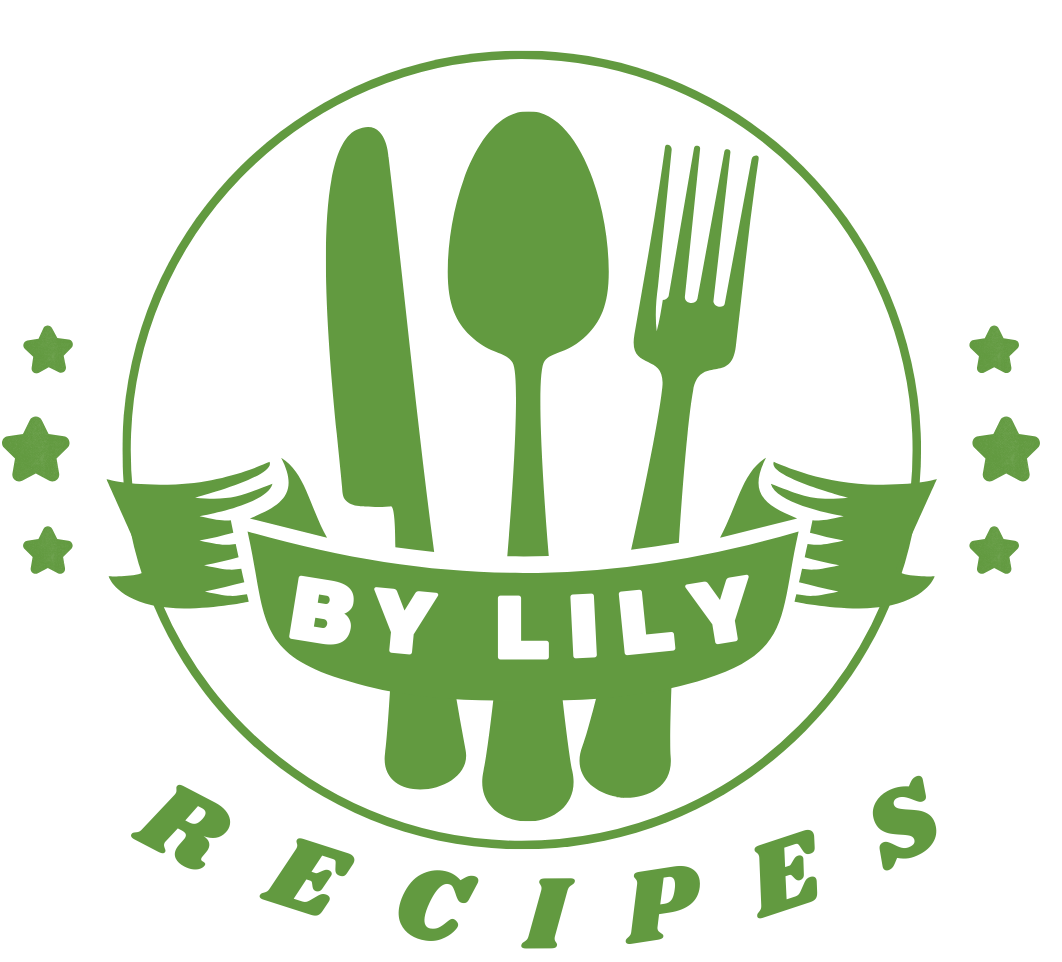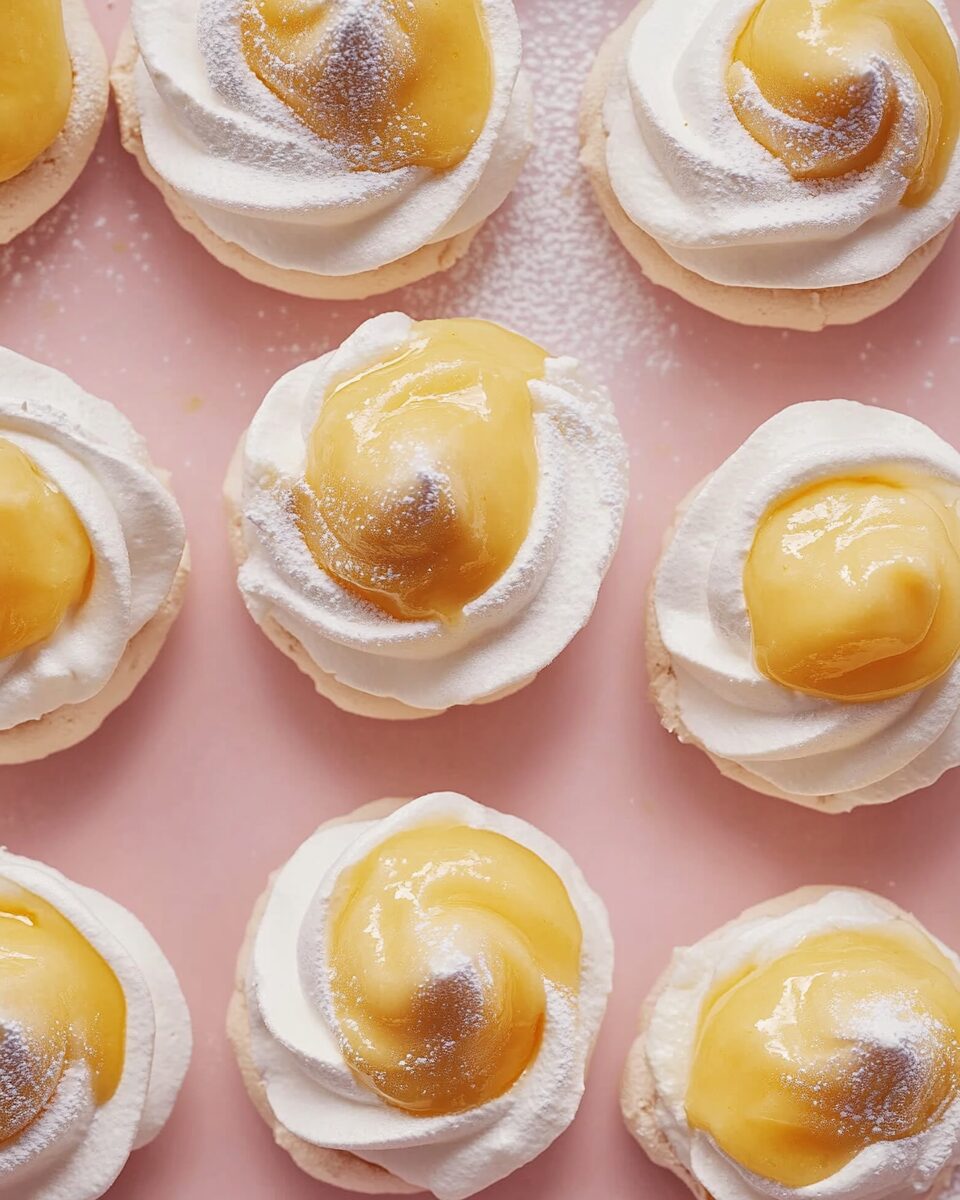This fun and beautiful Easter treat is deceptively easy to make. These pavlova eggs consist of crispy, airy meringues filled with a rich, tangy homemade lemon curd. The contrast between the sweet, delicate meringue and the tart curd makes this dessert a delightful and elegant addition to any celebration.
Full Recipe:
Ingredients
Meringues:
- 4 large egg whites, at room temperature
- 1/2 teaspoon cream of tartar
- 1/4 teaspoon fine salt
- 2 1/4 cups confectioners’ sugar
Lemon Curd:
- 3 large egg yolks
- 2/3 cup sugar
- 1 lemon, zested, plus 1/4 cup fresh lemon juice (from 2 lemons)
- 1/2 stick (4 tablespoons) cold unsalted butter, diced
Directions
-
Prepare the Meringues:
- Preheat the oven to 225°F (107°C) and position a rack in the lower third of the oven. Line two baking sheets with parchment paper.
- In a very clean mixing bowl, combine the egg whites, cream of tartar, and salt. Beat on medium speed until foamy (about 1 minute).
- Increase the speed to medium-high and continue beating until thick and opaque (about 1 more minute).
- Gradually add the confectioners’ sugar, 1/4 cup at a time, and beat until stiff, shiny peaks form (about 5 minutes).
- Using a 2-inch ice cream scoop, portion the meringue onto the prepared baking sheets, leaving 1 1/2 inches between each.
- Use the back of a metal tablespoon to make a shallow well in the center of each mound to hold the curd.
- Bake until the meringues are dry and crisp on the outside, about 2 hours. Let cool completely.
-
Make the Lemon Curd:
- Fill a medium saucepan with 1 inch of water and bring to a simmer over medium-high heat.
- In a metal bowl, whisk together the egg yolks, sugar, lemon juice, and zest until smooth.
- Place the bowl over the saucepan (without letting it touch the water) and whisk constantly until the mixture thickens and coats the back of a spoon (about 8 minutes).
- Remove from heat and stir in the butter, one piece at a time, allowing each to melt before adding the next.
- Transfer the curd to a clean container, press plastic wrap directly onto its surface, and refrigerate until fully chilled (at least 3 hours, up to 1 week).
-
Assemble and Serve:
- Spoon about 1 tablespoon of lemon curd into the well of each meringue. Serve immediately and enjoy!
Nutrients (Per Serving, Approximate)
- Calories: 80
- Total Fat: 2g
- Saturated Fat: 1g
- Cholesterol: 25mg
- Sodium: 25mg
- Carbohydrates: 15g
- Sugars: 14g
- Protein: 1g
This light yet indulgent dessert is perfect for Easter or any festive occasion, offering a lovely balance of sweetness and citrusy brightness!
The Perfect Combination of Textures and Flavors
One of the highlights of pavlova eggs is the contrast between textures. The meringue provides a crispy, melt-in-your-mouth exterior with a slightly chewy interior, while the lemon curd filling adds a creamy, tart, and luscious element. This interplay between sweet and tangy makes it a dessert that appeals to all palates, offering a refreshing break from heavier Easter sweets like chocolate and cakes.
Beyond taste and texture, the visual appeal of pavlova eggs is undeniable. The bright yellow lemon curd nestled inside delicate white meringues mimics the look of real eggs, making them a festive and whimsical addition to your Easter table. You can even enhance their presentation by garnishing them with edible flowers, fresh berries, or a dusting of powdered sugar for an extra touch of elegance.
The History and Significance of Pavlova
Pavlova is a classic dessert with origins in Australia and New Zealand, named after the famous Russian ballerina Anna Pavlova. It is traditionally made with a meringue base, often topped with whipped cream and fresh fruit. While this recipe takes a creative twist by turning pavlova into small egg-like nests filled with lemon curd, it still maintains the integrity of the classic pavlova dessert.
Lemon curd, a staple in British and European desserts, adds a wonderful depth of flavor. It has been used for centuries as a spread and filling for cakes, tarts, and pastries. When paired with pavlova, it brings a zesty brightness that elevates the entire dish.
A Dessert for All Occasions
Although this pavlova egg recipe is perfect for Easter, its versatility makes it a great choice for other celebrations and occasions. It works wonderfully for springtime gatherings, baby showers, bridal teas, or even as a light summer dessert. The refreshing citrus flavor and airy texture make it ideal for warm-weather entertaining.
Additionally, you can experiment with different curds or fillings to suit various themes. For example, passion fruit curd, raspberry curd, or even a chocolate ganache can provide exciting alternatives while maintaining the same delightful meringue base.
Tips for Perfect Pavlova Eggs
Making pavlova may seem intimidating, but with a few tips, you can achieve bakery-quality results every time:
- Use Fresh Egg Whites: Fresh eggs whip up better than older ones, giving you a more stable meringue.
- Avoid Moisture: Meringue is highly sensitive to humidity. If possible, make pavlova on a dry day, as excess moisture can prevent it from crisping properly.
- Slow and Low Baking: Baking at a low temperature for an extended period ensures that the meringue dries out fully without browning.
- Cool Gradually: Let the meringues cool completely in the oven with the door slightly ajar. This prevents cracks and helps maintain their shape.
- Store Properly: If making ahead, store the baked meringues in an airtight container at room temperature to maintain their crispness. Only add the lemon curd just before serving to prevent sogginess.
Customizing Your Pavlova Eggs
While the classic combination of meringue and lemon curd is hard to beat, you can get creative by adding your own twist:
- Flavoring the Meringue: Add a hint of vanilla, almond, or citrus zest for extra depth.
- Colorful Variations: Lightly tint the meringue with food coloring to match your Easter decor.
- Garnishing: Top with fresh mint, toasted coconut, or candied lemon peel for an extra decorative touch.
- Alternative Fillings: Swap the lemon curd for fruit compote, mascarpone, or even a light whipped cream for a different flavor experience.
Healthier and Dietary Alternatives
For those with dietary restrictions, this recipe can be modified to suit different needs:
- Sugar-Free Option: Use a sugar substitute like erythritol for the meringue and lemon curd to make a lower-sugar version.
- Dairy-Free Lemon Curd: Replace butter with coconut oil or a dairy-free margarine alternative.
- Keto-Friendly Variation: Make a keto-friendly curd by using monk fruit or stevia instead of sugar.
With these adjustments, you can ensure that everyone at your Easter gathering can enjoy this delightful treat without compromise.
The Joy of Making Homemade Pavlova Eggs
Beyond being a delicious dessert, making pavlova eggs is a fun and rewarding experience. Whether you’re an experienced baker or trying your hand at meringue for the first time, there’s something special about creating delicate, airy treats from simple ingredients. The process of whipping egg whites into glossy peaks and carefully piping out the nests is both therapeutic and satisfying.
Baking is also a great way to involve family and friends. Children especially love helping shape the meringue and spoon in the curd, making it a delightful activity for an Easter celebration. Plus, seeing their reactions when they take their first bite is priceless!
Conclusion: A Show-Stopping Easter Dessert
These pavlova eggs with lemon curd are a show-stopping dessert that combines beauty, flavor, and texture into one delightful bite. They are light yet indulgent, making them a perfect addition to any Easter celebration. Whether you’re hosting a large gathering or simply treating your family to something special, this dessert is sure to leave a lasting impression.
With its crisp meringue, tangy curd, and visually stunning presentation, this recipe is more than just a dessert—it’s a celebration of springtime flavors and Easter joy. Try making these pavlova eggs for your next festive occasion, and enjoy the perfect balance of sweetness and citrusy brightness!






